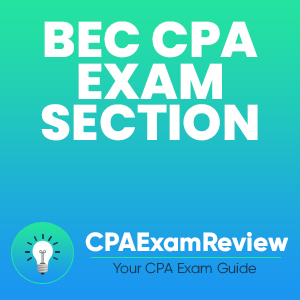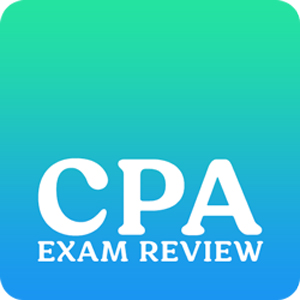 The Business Environment and Concepts (BEC) section of the CPA exam is an essential component of the certification process for aspiring Certified Public Accountants.
The Business Environment and Concepts (BEC) section of the CPA exam is an essential component of the certification process for aspiring Certified Public Accountants.
This section uniquely blends a variety of topics, ranging from corporate governance and economic concepts to financial management and information technology, encapsulating the diverse skill set required in the modern accounting profession.
This article delves into what the BEC section entails, its purpose, key topics, structure, and its significance in the broader context of accounting.
What is the BEC CPA Exam Section?
Contents
- What is the BEC CPA Exam Section?
- Key Topics Covered in the BEC Section
- Format and Structure of the BEC Exam
- Unique Aspects of the BEC Section
- Preparation Strategies for the BEC Section
- How long is the BEC CPA Exam part?
- How many hours should I study for BEC?
- Importance of BEC in an Accounting Career
- Bottom Line
- Frequently Asked Questions
- What are the main topics that the BEC section of the CPA exam covers?
- How long is the BEC section of the CPA exam?
- What type of questions are included in the BEC CPA exam?
- Can I use a calculator during the BEC CPA exam?
- Is there a specific passing score for the BEC section of the CPA exam?
- Is the BEC section of the CPA exam considered the easiest?
The BEC section is designed to assess a CPA candidate’s grasp of the business environment and the role of an accountant within it. Unlike other sections of the CPA exam that are heavily focused on accounting principles and practices, BEC encompasses a wider range of business disciplines.
Its purpose is to evaluate a candidate’s understanding of business concepts and their ability to apply this knowledge in accounting and financial management scenarios.
Key Topics Covered in the BEC Section
The BEC section is diverse in its coverage, encompassing several key areas:
Corporate Governance: This includes understanding internal controls, corporate governance frameworks, and the responsibilities of corporate officers and directors.
Economic Concepts and Analysis: Candidates are tested on their knowledge of economic concepts, market influences, and financial risk management.
Financial Management: This area covers financial decision-making, including capital budgeting, working capital management, and financial analysis.
Information Technology: Given the increasing role of technology in business, this section assesses a candidate’s understanding of information systems, data governance, and cybersecurity.
Operations Management: This involves understanding operational processes, project management, and strategic planning.
These topics not only require a theoretical understanding but also an ability to apply business and economic concepts in practical settings.
Format and Structure of the BEC Exam
The Business Environment and Concepts (BEC) section of the CPA exam has a unique format and structure compared to the other sections of the CPA exam. As of my last update, here’s how it is organized:
Testlets and Question Types: The BEC section is divided into five testlets. The first two testlets consist of multiple-choice questions (MCQs), and the next two contain task-based simulations (TBSs). The fifth testlet features written communication tasks.
Written Communication Tasks: Unique to the BEC section, these tasks require candidates to respond to business scenarios through written essays or memos. These tasks test candidates’ ability to effectively communicate business concepts in writing.
Content Areas: The BEC section covers a wide range of topics, including corporate governance, economic concepts and analysis, financial management, information technology, and operations management.
Scoring: The MCQs account for 50% of the total score, task-based simulations are 35%, and written communication tasks make up the remaining 15%.
How many questions are on BEC?
The Business Environment and Concepts (BEC) section of the CPA Exam contains a total of 62 Multiple-Choice Questions (MCQs) and 4 Task-Based Simulations (TBSs), along with 3 written communication tasks.
These questions are divided across the five testlets in the BEC section, with the first two testlets consisting of the MCQs and the next two containing the TBSs. The fifth and final testlet is dedicated to the written communication tasks.
This distribution allows for a comprehensive assessment of a candidate’s knowledge and skills in various business-related areas.
Unique Aspects of the BEC Section
What sets BEC apart from other CPA exam sections is the inclusion of written communication tasks. These tasks require candidates to write business memos or letters in response to given scenarios.
This section also uniquely integrates a broad range of business disciplines, making it a comprehensive test of a candidate’s business acumen.
Preparation Strategies for the BEC Section
Preparing for BEC requires a multifaceted approach:
Broad Study Plan: Due to the wide range of topics, candidates should develop a study plan that covers all areas of the BEC section. Utilizing CPA review courses that offer comprehensive coverage of BEC topics can be beneficial.
Practice for Variety: Engage in regular practice with MCQs, TBS, and especially written communication tasks. Understanding the format and expectations of written tasks is key.
Focus on Application: Given the emphasis on the application of knowledge, candidates should practice scenario-based questions and case studies to enhance their analytical and decision-making skills.
Time Management: Effective time management is crucial, especially for written tasks. Practice writing clear and concise responses within a limited time frame.
How long is the BEC CPA Exam part?
The Business Environment and Concepts (BEC) section of the CPA Exam is four hours long. This duration is designed to allow sufficient time for candidates to complete the various components of the exam, including multiple-choice questions, task-based simulations, and written communication tasks.
Managing time effectively during the exam is crucial to ensure all sections are completed within this time frame.
How many hours should I study for BEC?
For the BEC section of the CPA exam, it is generally recommended to study for approximately 80-100 hours. However, this can vary based on individual familiarity with the subject matter and personal study habits.
Importance of BEC in an Accounting Career
The knowledge and skills tested in the BEC section are highly relevant and valuable in modern accounting roles. Understanding of corporate governance, economic principles, financial management, and information technology are essential for accountants in today’s business environment.
Mastery of these areas enables accountants to contribute effectively to business strategy, operational efficiency, and risk management.
Bottom Line
The BEC section of the CPA exam, with its unique blend of business, technology, and communication topics, is an integral part of the CPA qualification. It challenges candidates to demonstrate a broad understanding of the business world and its intersection with accounting.
Excelling in BEC requires not just knowledge of business concepts but also the ability to apply this knowledge in practical scenarios and communicate effectively.
For aspiring CPAs, conquering the BEC section is not just about passing the exam; it’s about preparing for a successful career in the dynamic and evolving field of accounting.
Frequently Asked Questions
What are the main topics that the BEC section of the CPA exam covers?
The BEC (Business Environment and Concepts) section of the CPA exam covers a broad range of business-related topics. These include Corporate Governance, Economic Concepts and Analysis, Financial Management, Information Technology, and Operations Management. Each of these areas assesses a candidate’s understanding of business principles and their application in an accounting context.
How long is the BEC section of the CPA exam?
The BEC section of the CPA exam is four hours long, consisting of multiple-choice questions, task-based simulations, and written communication tasks. Effective time management is crucial to complete all sections within this timeframe.
What type of questions are included in the BEC CPA exam?
The BEC section includes multiple-choice questions, task-based simulations, and unique to this section, written communication tasks. These question types assess a wide range of business-related knowledge and skills.
Can I use a calculator during the BEC CPA exam?
Yes, candidates are allowed to use an on-screen calculator provided during the exam. Personal calculators are not permitted.
Is there a specific passing score for the BEC section of the CPA exam?
Similar to other sections of the CPA exam, a score of 75 or higher is required to pass the BEC section. The score is a scaled combination of performance across all question types.
Is the BEC section of the CPA exam considered the easiest?
The perception of BEC being the easiest varies among candidates, as it depends on individual strengths and backgrounds. Generally, BEC is considered less technical than other sections, but it still requires comprehensive study and understanding.

